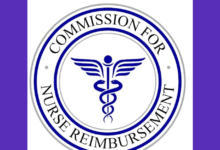Report finds permanent and temporary nurses ‘in short supply’

The demand for permanent and temporary nurses is on the rise, according to new report on UK workforce trends.
The Recruitment and Employment Confederation (REC), together with consultancy firm KPMG, has published the latest edition of its yearly UK Report on Jobs.
“The plan for NHS staffing needs to deal with 21st Century labour market realities”
Neil Carberry
This annual report series, published each December, measures the labour demands, staff availability, skill availability and pay pressures across UK industries including health and care.
According to the latest report, nurses, health support workers, social care workers, carers and are all in “short supply”, both in permanent and temporary staffing areas.
The staffing category “nursing/medical/care”, which includes nurses, midwives, doctors, allied health professionals and other non-registered health workers, was the most in-demand for permanent staff.
The health workforce saw the second-biggest rise in demand during the 12 months between December 2022 and December 2023 of any workforce, behind only the hotel and catering industry, said the report.
This is the fourth consecutive year that demand has grown, with only 2020 bucking the trend since the 2018-19 period.
Neil Carberry, the REC’s chief executive, said the figures demonstrated the “importance of supporting NHS performance”.
“Recruiters can see the impact on long NHS waiting lists in the supply of candidates looking for work,” he said.
“Addressing this will be a key way to tackle inactivity. But the plan for NHS staffing needs to deal with 21st Century labour market realities.”
Mr Carberry also said that, in his view, cooperation between health employers and unions was the key to solving the workforce crisis.
“Medical staff have choices in and power over their careers – working with unions, agencies and other stakeholders on a plan will get the NHS farther than diktat from Whitehall,” he added.
The Royal College of Nursing’s (RCN) general secretary and chief executive, Pat Cullen, said the upward trend in demand for nursing, and other healthcare, staff is a sign working conditions must improve.
“The labour choice that too many are making is not to enter nursing at all,” said Ms Cullen.
“There are falling numbers of students on nurse courses this year. People see the profession is not valued and rewarded fairly and are choosing not to join it, with many others quitting early too.”
Ms Cullen’s remarks come as the RCN remains in dispute with the UK Government over pay.
A deal featuring a pay increase was reached in the summer with the majority of NHS unions and has since been implemented.
However, the RCN’s members rejected the deal, in spite of a recommendation to accept it from college leaders. Unite also rejected the deal.
“The labour choice that too many are making is not to enter nursing at all”
Pat Cullen
Over the Christmas period, the union said it was seeking to find out if its members had an appetite for further national strikes akin to the ongoing walkouts by junior doctors.
In Northern Ireland, new strike dates have been announced for January over pay, as nurses in the devolved nation are still without any pay rise – including the one the RCN rejected which Welsh, English and Scottish nurses have received.
Meanwhile, regional disputes in the North East and North West of England over pay continue.
Ms Cullen continued: “In the face of surging demand on health and care services, the nursing shortage makes it hard for the system to cope and patients pay the price.
“The government must take responsibility for boosting student numbers with proper support payments and demonstrate the nursing profession is rewarded with fair pay.”







